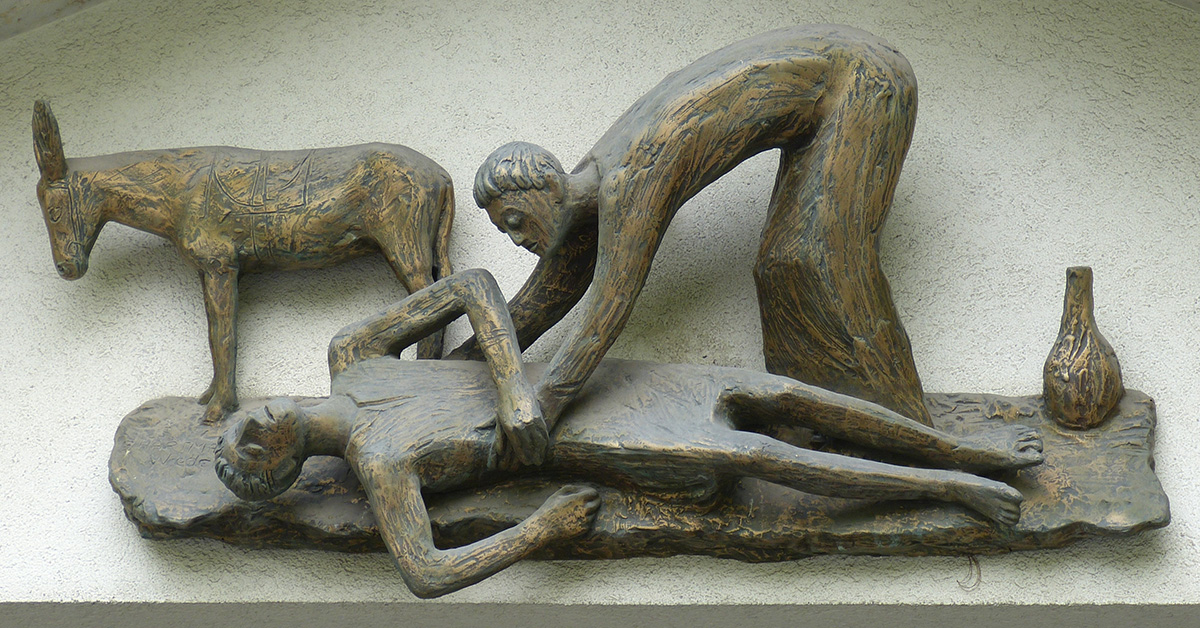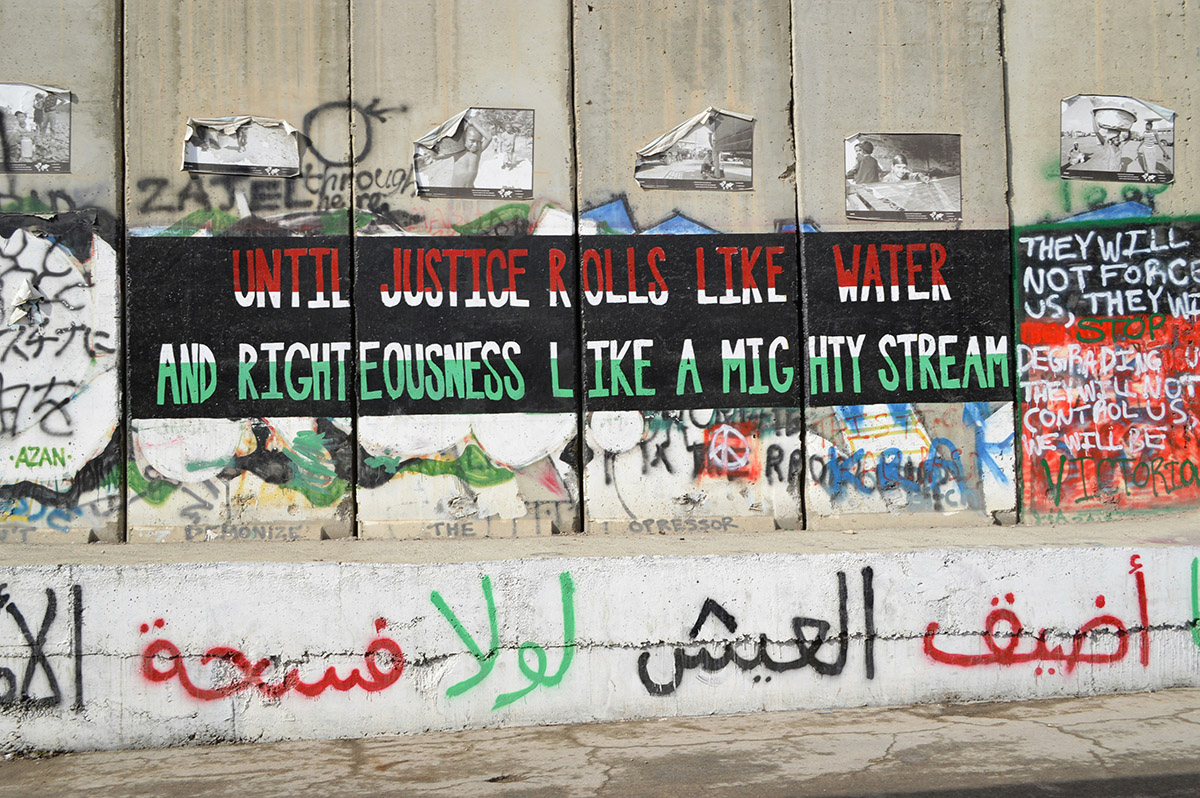

The Peace and Reconciliation Network (PRN) is a World Evangelical Alliance commission with regional and national teams throughout the world who work to inspire, equip and connect Christians so every disciple, church, and alliance exists as a centre of reconciliation.
From the Director of KLC:
The attacks of October 7 – occurring not in a vacuum but in the context of some fifty-seven years of occupation, fourteen years of siege, and multiple wars – and the subsequent devastation of Gaza have been a source of agony for some/many of us in the West. It is very hard to secure an accurate number of those who have been and are being killed in Gaza. An article in The Lancet from 5 July 2024 estimates that “Applying a conservative estimate of four indirect deaths per one direct death to the 37 396 deaths reported, it is not implausible to estimate that up to 186 000 or even more deaths could be attributable to the current conflict in Gaza.”
Many of us hoped and expected that our Western governments would take seriously the findings of the ICJ in the case brought against Israel by South Africa: “54. In the Court’s view, the facts and circumstances mentioned above are sufficient to conclude that at least some of the rights claimed by South Africa and for which it is seeking protection are plausible. This is the case with respect to the right of the Palestinians in Gaza to be protected from acts of genocide and related prohibited acts identified in Article III, and the right of South Africa to seek Israel’s compliance with the latter’s obligations under the Convention.” Alas, it appears that international law is fine when it supports “our” side but not when it goes against it. This bodes ill for our geopolitical future and has been devastating for Gaza.
At our recent KLC Annual Conference in June we had some discussion of the terrible situation in Gaza. A wise suggestion from one participant was that we do well to listen to the voices of our brothers and sisters in the Middle East. What follows is a searing letter to the global church from just such brothers and sisters, which we are privileged to publish.
Craig G. Bartholomew

The Peace and Reconciliation Network of the Middle East and North Africa (MENA) region expresses a deep concern about the noticeable disparity in the Global Church’s discourse on the crises in Ukraine and Gaza. While the Western Christians and the Global Church have called for direct mobilization of resources and demonstrated a strong, explicit stance on Ukraine, its discourse on Gaza has been significantly less prominent and less explicit. This difference in response for us, your brothers and sisters in the MENA region, is not only stark but also emotionally deeply disconcerting. The urgent and visceral reactions to the situation in Ukraine are not mirrored in the discourse on Gaza, despite both regions facing severe humanitarian crises. The silence or subdued approach to Gaza is unjust and overlooks a significant ongoing tragedy.
To provide a broader context, the specific injustice in Gaza involves the mass killing of people who have no means to defend themselves or raise their voices. Gazans are being targeted by a regional superpower, supported by a global superpower. This action by the Israeli government has been qualified by the International Court of Justice (ICJ) as a “plausible genocide.” The situation in Gaza amounts to collective punishment, where people are being deprived of necessities such as food, water, and medicine – a form of domicide, rendering Gaza uninhabitable.
This crisis occurs against the backdrop of an occupation that has persisted since 1967. Moreover, 85% of Gaza’s population consists of people displaced since 1948, meaning the majority of Gaza’s residents are not originally from Gaza. There have been minimal efforts to address and correct this longstanding injustice.
The emotions generated by this situation are profound: anger, frustration, despair, and loss. These emotions raise a critical question – how can the church maintain a consistent and just witness across the MENA region when its silence makes it appear complicit in fostering these emotions? The church’s perceived complicity in this injustice tarnishes its moral standing and witness. It is crucial for the church to recognize and name this injustice. Acknowledging and addressing the suffering of the Gazan people is essential for upholding the church’s integrity and moral authority. Only through consistent advocacy for all oppressed communities can the church truly embody its commitment to justice and compassion.
Furthermore, we observe a double standard that diminishes our witness as ambassadors of Christ to his gospel of peace and reconciliation, widening the gulf between Muslims and Christians, especially Evangelicals, both locally and globally. Even longstanding friends no longer wish to associate with us, Evangelicals in particular, as a result of our perceived complicity in violence and oppression.
The cost of not speaking out is far higher than speaking imperfectly; if we do not address violence, it can breed more violence and spill across the region. Our silence not only harms our witness to Christ but discredits a long history of great work done by early Protestant missionaries in the MENA, Christians who laboured to present Evangelicals as ambassadors of human dignity, liberation, and who built bridges with Arabic culture and contributed to its development. Now, we are witnessing such a great heritage being lost as modern-day Arabs, even those aware of our good history, see us as standing on the side of those supporting killing and war in the name of God.
Notably, the attackers of October 7th are likely those who lost their families in current and previous Gaza conflicts. God will hold us accountable for not helping the “least of these” as highlighted in Jesus’s parable of the sheep and the goats in Matthew 25:31. We have become numb to violence, ignoring cries for help, and failing the people of Gaza and other Palestinians long before October 7th. Arab Evangelicals fear speaking out to avoid offending American and European donors. The blood of our Gazan brothers and sisters in humanity cries out to us.
The siege and occupation of Gaza needs to end. This would serve the best interests of hostages, their families, and the Israelis. We recognize the suffering of Israelis during the October 7 attack, and we recognize their humanity, made in the image of God, which is decaying due to the moral bankruptcy of the occupation. We call for nonviolence on all sides; both Palestinians and Israelis deserve a safe, secure, and dignified home. The kingdom of God cannot break through if injustice is yoked with military power and economic oppression. The good news must truly be good news.
Scripture repeatedly commands us to care not only for the orphan and the widow but also for our enemy and neighbor. Light emerges from darkness, as seen in the Palestinian Christian tradition of Holy Light, on Easter Saturday, where light scatters darkness and reveals what is hidden. The Holy Spirit unites us as members of the Body of Christ; when one of us suffers, we all suffer. We long for our brothers and sisters in Gaza to experience the fullness of Salam/Shalom/Peace.
We yearn for a time when eyes will see, ears will hear, and hearts will empathize with the heart of God, who hears the cries of those who suffer unjustly. We need discernment to recognize wrongdoing. Revelation 20 and 21 speak of nations, not just one nation, coming into the City of God. God cares about all nations, not just Israel. The work of Christ reconciles all things to himself: God, each other, and all creation. Salam/Shalom encompasses justice, reparation, and the judgment of evil empires and evildoers.
We call upon the Global Church to the following actions:
We must confront the forces of hate and injustice by speaking out and taking actions that promote change in unjust systems and situations.
Silence is not an option; where we have been silent, fearful, or supportive of violence, we must repent as Christians. We seek partnership with congregations and Christian bodies willing to join us in challenging systems and structures of injustice. Jesus said, “Blessed are the peacemakers.” Peacemaking is action, not just words, and will involve risk, persecution, and intense labor. When we commit to this together, we witness to Christ and will be called the children of God.